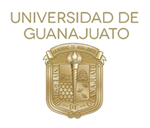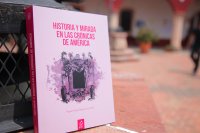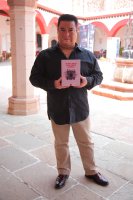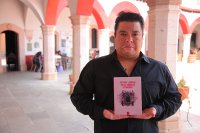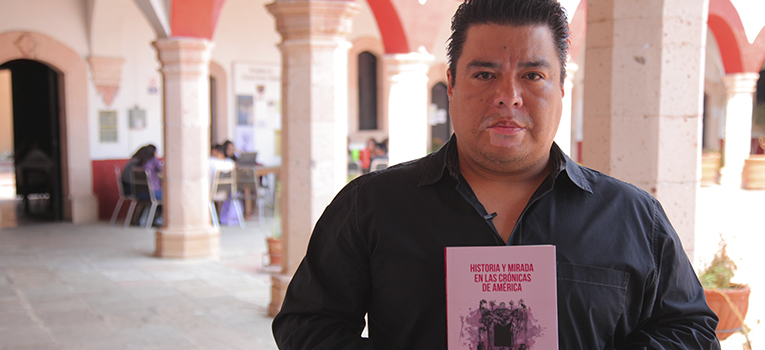
Guanajuato, Gto., July 11, 2019.- "The Conquest of America is an open vein that still sickens the essentialist identity of the Mexican, so we must resume the discussion and rethink history, rethink the origin of the nation or if a new pact with the past is necessary" , this was mentioned by the professor-researcher of the Department of History of the University of Guanajuato, Dr. Miguel Angel Segundo Guzmán.
One of his main interests as a researcher is the complex readings, he makes about the texts they invented in the New World. From a hermeneutic analysis of the Chronicles of America he has built historiographic horizons to dissect the Western tradition in its processes of creating alterities in writing and on indigenous memory.
The professor at the University of Guanajuato commented "I have been working for almost 20 years on the problem of the Conquest of America, particularly in the texts emanating from that process, that is, I try to understand how those texts of the time of conquest are built : how they work and how they work the alterity system they build."
Throughout his career as a researcher he has focused on analyzing the construction of the Indian in the Spanish accounts of the century of conquest. In this sense, his book "History and Look in the Chronicles of America" was recently published in the Historiography Collection of the Department of History of the University of Guanajuato.
The book begins with a prejudice to historiate the scriptures about the New World: "It is only possible to understand the nature of the Chronicles of America by placing them in their genealogical frameworks, in the imaginary horizons that gave meaning and readability to those manuscripts."
The publication is divided into three themes, the first traces the symbolic of war in the Western tradition, to understand the horizon of the Letters of Relation of Hernán Cortes. The second proposes a reading of the texts that would reconfigure pre-Hispanic morality in monastic contexts. The third is a fragmentary story of the gaze: ways of seeing and thinking about alterity. The chain closes with Friar Bernardino de Sahagún and his writing project.
Dr. Miguel Angel Segundo Guzmán said that many of the American chronicles were very important in the colonial world, others went to the archive, later recovered in the nineteenth century by political historians who rescued those texts and converted them in the minutes that underheld the origin of the nation. Post-revolutionary nationalism put them back in the center, but "the account of the Mexican was cracked at the end of the twentieth century and since then we have to rethink where we come from and how we are to build a plural narrative of identity. The book is based on analyzing the founding stories, I have the impression, that at the time they built a new indigenous memory, that is the great theme of the book."
To conclude he reflected that in these almost 500 years of conquest of Mexico it is necessary to think again about the origin of the nation "because we need, the discussions that has had the fourth transformation with all this imaginary of the Conquest have to do with not it's a settled issue, some historians say that if it is, I think it is not and that the echoes that the president's letter has had nationally and internationally prove it, the best way to keep thinking is from history."
The researcher reiterated that the process of rethinking history involves going back to the origin and "nothing better than the American chronicles to get closer to that black hole that represents conquest."
If there is anyone interested in the consultation and reading of the book you can download it for free on the following site: http://www.dcsh.ugto.mx/editorial/images/publicaciones/Depto.Historia/cronicas.pdf
Photo gallery
